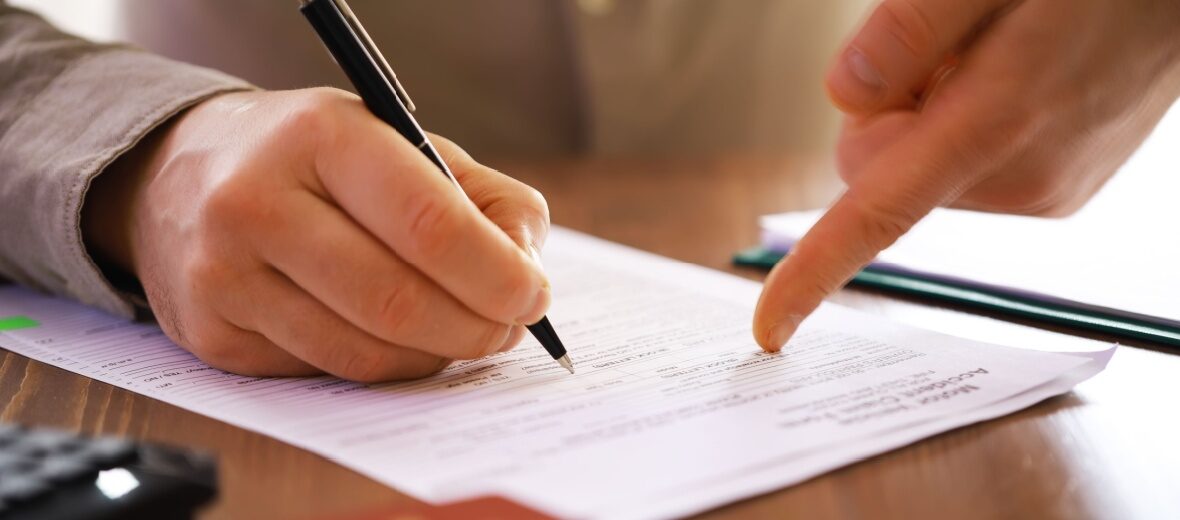A March 2025 survey carried out by the Phoenix Group found that only 8% of people have a Lasting Power of Attorney (LPA) or Power of Attorney (POA) in place. LPAs and POAs are terms used to describe similar arrangements in different parts of the world. In England and Wales, we call it an LPA, whereas in Scotland and other parts of the world, including Hong Kong, it’s a POA.
Furthermore, just 13% said they knew a lot about POA, and 45% admitted that they had never thought about putting one in place.
To an extent, this is understandable. The common perception of POA is that these arrangements are generally only needed by the elderly, particularly around issues such as care provision and their financial management in the event of a serious illness such as Alzheimer’s or a severe stroke.
However, building your financial resilience and being prepared for the unexpected are essential elements of your financial plan, so it’s equally imperative for younger people to have POA arrangements in place too.
In this article, you can read about why this is so important, and the different types of arrangements you can access in both the UK and Hong Kong.
A serious illness or accident could affect you at any time, and you may need help managing overseas assets
A POA or LPA is a legal document that allows you to nominate someone you trust to manage your financial and/or health issues on your behalf.
If you are internationally mobile or have assets in different countries, POA arrangements can be very important if you have financial issues needing to be dealt with and you aren’t available to do this yourself. For example, these could include the sale of property or the management of certain business interests.
Additionally, you should be aware that incapacitating illnesses can affect you without warning, regardless of your age.
For example, a report from the Stroke Association confirms that 100,000 people in the UK have a stroke each year, and a British Heart Foundation paper reveals that 1 in 4 are of working age.
Furthermore, while it’s not a comfortable thought, there is the ever-present risk of a serious accident or illness leaving you hospitalised for a long period. Even if you have a next of kin, once you lose capacity, you cannot give permission for them to act on your behalf. This has to happen before any medical event takes place, which is why it’s crucial for young, healthy people to make POA arrangements.
Having a POA in place means that, regardless of the contributory circumstances, you will have the peace of mind of knowing the someone is acting on your behalf in accordance with your expressed wishes.
The UK and Hong Kong have different types of Power of Attorney arrangements
There are two different types of LPA in the UK:
- A Health and Welfare LPA, giving someone authority to make medical and care decisions on your behalf.
- A Property and Financial Affairs LPA that covers managing all your financial arrangements, including paying bills, claiming any benefits, and looking after your assets.
Given that they cover different areas, it makes sense to have both in place.
Doing so will give both you and your family enormous peace of mind and we would strongly recommend that you see this as one of your financial planning priorities.
When it comes to Hong Kong, there are legal steps you can go through to be able to use any existing UK LPA. That said, it is far more straightforward to set up separate arrangements if you will be spending some time there.
For example, you are likely to have specific requirements while you are living and working in Hong Kong, and may want to appoint a different attorney to the ones you have chosen as your representatives in the UK.
There are three commonly used types of POA in Hong Kong:
- A General Power of Attorney enables you to give an attorney the authority to handle a wide range of matters on your behalf, often related to financial affairs. However, you should note that it becomes invalid if you become mentally incapable of handling your own affairs. This may be useful if you need help handling several types of asset and want to give a trusted person some of the load.
- An Enduring Power of Attorney, as the name suggests, is specifically designed to remain in place even if you lose mental capacity, and it can be used for all financial and property matters.
- A Limited Power of Attorney allows you to appoint someone to deal with a specific task such selling a property, or making financial decisions for you if you are overseas or in hospital.
The POA you set up will be dependent on your specific circumstances. As these may change, it’s worth reviewing these regularly and speaking to a professional about your arrangements.
It’s important you trust the people you choose to manage your affairs
You can nominate one or more people to act on your behalf and manage your affairs if you’re unable, whether through health issues or a temporary move abroad.
It’s important to spend some time deciding who you want to appoint. They may need to make important financial decisions, so you will want to ensure they have the appropriate experience or expertise, as well as a clear understanding of your arrangements and priorities. Such nominees could include business associates, a close family member, or your solicitor.
You can also write specific restrictions into your POA to make it clear what your attorney can and can’t do. For instance, you may wish to prevent your attorney from making decisions regarding your home or other specific assets you own.
Power of Attorney arrangements can help reduce delays in managing your finances
In many circumstances, a delay in someone being able to manage your finances on your behalf could create financial upheaval with an impact that could threaten your long-term financial security.
For instance, if you lost mental capacity for several years, during that time it may not be possible for anyone to act on your behalf. This could mean that they struggle to access funds that pay for your care. Such events could also result in your assets being susceptible to fraud or serious financial loss.
To prevent this, having an appropriate POA in place will mean that your chosen nominees can manage your affairs immediately should the need arise.
For example, you could set up a specific POA for a fixed term if you are going to be overseas and you know that your chosen nominee will be able to make certain decisions and act on your behalf for an agreed period of time.
Get in touch
Regardless of where you are living and your age, we strongly believe that POA arrangements should be a top priority when it comes to your financial planning generally, and estate planning more specifically.
If you’d like to discuss different types of POA, or other ways to help ensure your wealth is protected if anything happens to you, please get in touch.
You can contact us by email or, if you prefer to speak to us, you can reach us in the UK on +44 (0) 208 0044900 or in Hong Kong on +852 39039004.




 Production
Production